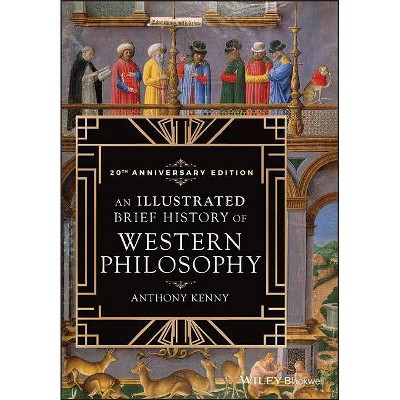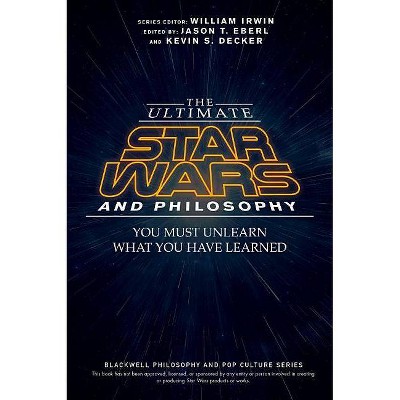Sponsored

Brief History Liberty - (Brief Histories of Philosophy) by David Schmidtz & Jason Brennan (Paperback)
In Stock
Sponsored
About this item
Highlights
- Through a fusion of philosophical, social scientific, and historical methods, A Brief History of Liberty provides a comprehensive, philosophically-informed portrait of the elusive nature of one of our most cherished ideals.
- About the Author: David Schmidtz is Kendrick Professor of Philosophy, joint Professor of Economics, and Director of the Freedom Center at the University of Arizona.
- 288 Pages
- Philosophy, Political
- Series Name: Brief Histories of Philosophy
Description
Book Synopsis
Through a fusion of philosophical, social scientific, and historical methods, A Brief History of Liberty provides a comprehensive, philosophically-informed portrait of the elusive nature of one of our most cherished ideals.- Offers a succinct yet thorough survey of personal freedom
- Explores the true meaning of liberty, drawing philosophical lessons about liberty from history
- Considers the writings of key historical figures from Socrates and Erasmus to Hobbes, Locke, Marx, and Adam Smith
- Combines philosophical rigor with social scientific analysis
- Argues that liberty refers to a range of related but specific ideas rather than limiting the concept to one definition
From the Back Cover
"This book impressively builds a compelling case for understanding David Schmidtz and Jason Brennan negative liberty as complementary to - rather than competitive with - other ways of conceiving freedom." Hillel STeiner, University of Manchester
Liberty is a lofty concept. But what exactly is liberty? What kind of value does it have? What institutions best promote and protect the forms of liberty that are worth wanting? And what are the specific benefits and dangers inherent in so-called free societies?
Using a fusion of philosophical, social scientific, and historical methods, A Brief History of Liberty offers a succinct survey of pivotal moments in the evolution of personal freedom, drawing on key historical figures from John Knox and Martin Luther to Karl Marx and Adam Smith to Roger Williams and Thurgood Marshall. The authors examine how past (if incomplete) successes in the struggle for liberty have led many of us to liberty's "last frontier" internal psychological obstacles to our being as autonomous as we would like to be. Readers are encouraged to reflect on their own concepts of personal freedom - what it is, where it comes from, why they have it, and what it has done for them.
Stimulating and thought-provoking, A Brief History of Liberty offers readers a philosophically informed portrait of the elusive nature of one of our most cherished ideals.
Review Quotes
"Although the book has a strongly classical liberal flavour, it also contains some interesting discussion of positive liberty. For one thing, Schmidtz and Brennan argue that the progress of negative liberty in western societies has massively expanded almost everyone's range of real options. For another, they suggest that this greater (negative and positive) external freedom can open the way to a greater internal or psychological" freedom". (The Philosophers' Magazine, 13 August 2010)
"Its brevity and simplicity is perhaps understandable, given the historical focus and ambitious scope of the book, and the authors' evident desire to get the light, entertaining and up-beat narrative moving." (The Philosopher's Magazine, August 2010)"The book weaves together a number of figures in social, political, philosophical, economic, and even psychological theory, in a way not commonly found, and it does so rather effectively." (Notre Dame Philosophical Reviews, September 05, 2010)
"Schmidtz and Brennan offer their readers insights into the freedom debate by following it through the broad sweep of Western history...[A Brief History of Liberty]... comprehensive notes and bibliographies and...deserve[s] to be taken seriously by those with an interest in liberty." (The Philosopher, summer 2010)
About the Author
David Schmidtz is Kendrick Professor of Philosophy, joint Professor of Economics, and Director of the Freedom Center at the University of Arizona. His articles have appeared in the Journal of Philosophy, Ethics, and Political Theory.
Jason Brennan is Assistant Professor of Philosophy, Research, at Brown University, and a faculty associate of the Political Theory Project at Brown University. His articles have appeared in Philosophy and Phenomenological Research, The Australasian Journal of Philosophy, and Ratio.











